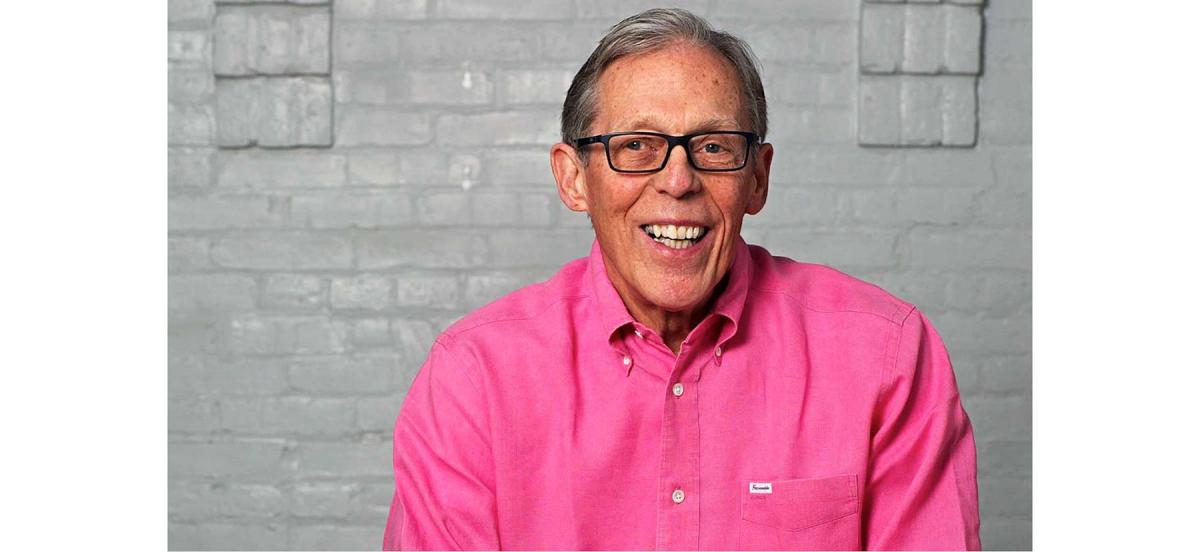Story Doctor Richard Wenzel '61

Richard Wenzel '61
Details
The epidemiologist-turned-novelist tells us how his work with microbes informs his writing.
Richard Wenzel has long known medicine was for him. When he was eight, he fell out of a tree and spent weeks in the hospital recuperating from a broken femur, followed by a serious staph infection. Of course, Wenzel became an epidemiologist. The pioneering microbe hunter is best known for his work on infection control in hospitals. He served on the editorial board of The New England Journal of Medicine for a decade, and in 2001 was named the periodical’s first editor-at-large. In more recent years, however, the former chairman of internal medicine at Virginia Commonwealth University has used his expertise to spin complex novels of intrigue and terror that feature medical mysteries.
In Labyrinth of Terror (2010), the first book in Wenzel’s thriller series Terror Trifecta, epidemiologist Jake Evans teams up with an MI5 agent and a microbiologist/IT expert in a race to stop a global pandemic. In the recently released sequel, Dreams of Troy (2017), the heroes reunite in Barcelona to combat cyberterrorism and its potential to hijack medical devices and hospital systems.
At 78, Wenzel is retired, though he still lectures at VCU on infectious diseases. Recently, the good doctor took a break from imagining terror plots to speak with Lini S. Kadaba from his White Stone, Va., home.
Lini Kadaba: How do you come up with these terrifying nail-biters?
Richard Wenzel: I confess to a passion for epidemics. They arrive suddenly and unexpectedly, are life-altering, and demand urgent investigation and control. Early in my career, I was witness to the devastation of smallpox and cholera in [what is now] Bangladesh, cholera and dengue in the Philippines, and later many clusters of hospital-associated infections in the U.S., Europe, and Latin America. The interaction of people and microbes is so frequent. Most of the time we do fine. Occasionally, results are devastating for one reason or another. Cyber terror has similarities to infections: a virus or worm can invade a host and take over the “genetic code” of a computer program or chip and redesign the output so something new is produced. There are ways to hide this. People talk about a Trojan horse [a type of malware]. I started reading about it.
LK: Could such mayhem really happen?
RW: There is no sci-fi in my books. The storylines are a brief leap ahead of reality. Bioterror and cyber terror are current threats in parts of the world. Nevertheless, our response should not be fear. Our country needs above all to recognize the possibilities and develop robust systems for early detection and plans for responses, including periodic testing and rehearsals.
LK: You have a long history of nonfiction writing, including Stalking Microbes (2005), a collection of essays on your experiences as an epidemiologist; seven textbooks; and more than 500 scientific publications. Why the jump to medical thrillers?
RW: The transition to writing thrillers involving man-made biological or cyber terror seems natural, and I enjoy introducing disparate characters whose lives intersect at ground zero. I like people to pay attention to ideas that I have. I thought, maybe I could influence more people with fiction.
LK: How much like you is your renowned Stanford University epidemiologist character Jake Evans, his wandering eye and affairs aside?
RW: Jake and I share our dedication to clinical medicine, patient care, and skills in epidemiology. Thereafter, our value systems and commitments diverge.
LK: Your biology studies at Haverford prepared you for medical school. But you also pursued your love of writing through the student newspaper. In fact, you gained a bit of notoriety, didn’t you?
RW: At Haverford, I did write some columns for the newspaper, off and on. I was doing a genetics experiment in one of my biology courses, and we were breeding fruit flies. I wrote a tongue-in-cheek piece about, basically, sex on campus. A lot of people reading it, the alumni, thought there was a huge scandal going on. They called the President’s Office. I had to explain that I’m a bio major, that this was tongue-in-cheek, and that I’m talking about fruit flies. It had a happy ending. But I realized, this was kind of fun. People took me seriously.
LK: What reading material is currently on your nightstand?
RW: An odd mixture of books is on the table: Earthly Remains: A Commissario Guido Brunetti Mystery by Donna Leon; Dying for Ideas: The Dangerous Lives of the Philosophers by Costica Bradatan; The North Water by Ian McGuire; Why Homer Matters: A History by Adam Nicolson; and At the Existentialist Cafe: Freedom, Being, and Apricot Cocktails by Sarah Bakewell.
LK: Have you started writing the third novel in the Terror Trifecta?
RW: I am only now beginning to think about the next terror plots. I am beginning to sketch a few ideas for introducing new characters with many conflicts for each.
LK: Where in the world will the plot thicken?
RW: I love anything Italian. If I can think about the right plot and right terror thing, I’d love to be in Tuscany in the next book. But I’m not sure.



